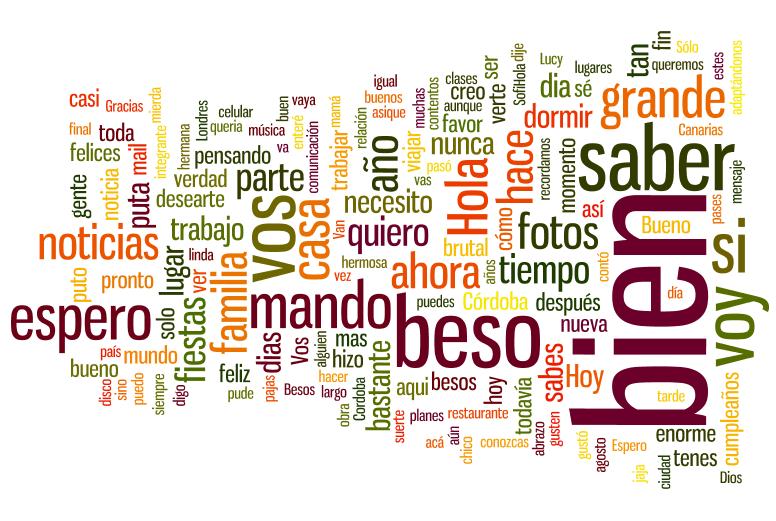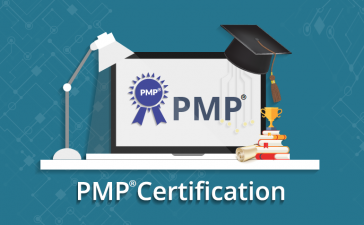A foreign language expert has become a favoured career option over the past few years. Besides German and French, Spanish has also set a trend in India. The introduction of the Spanish language in private schools has made learning convenient. However, building a career out of this has become even more challenging because of high competition. Cracking a Spanish-language interview is the hardest part. Therefore, I have prepared a little something for your guidance.
Here are some commonly asked questions and answers in a Spanish-language interview.

1. Tell us about yourself. -Cuéntanos acerca de tí.
This is the most common question asked in a Spanish language interview. Straightaway, you should explain your current situation and past job experience to the interviewer. Remember that this question expects you to tell the necessary information beyond the written word.
2. What are your strengths? -¿Cuáles son sus puntos fuertes?
To clarify, the interviewer wants to know what you are actually good at. Most people promptly answer this by rephrasing or using the job description. However, you should always talk about the skills you possess. These skills should not only benefit the company in some manner but also be supported by prior experience.
3. What is your biggest flaw? -¿Cuál es tu mayor defecto?
Everyone is flawed and has weaknesses. Although, it is not smart to be entirely truthful about this question. An interviewer respects every side of you but will never give the position to someone who is not reliable. In a Spanish language interview, it is advisable to tell a weakness that will not affect your job at work. Mentioning your attempts at improving your mistakes is also a good sign as it shows your careful thought.
4. Why do you want to work for us? -¿Por qué quieres trabajar para nosotros?
To answer, you should include what motivated you to apply for this position and what made you choose their company. It is better to have the necessary knowledge about the company, so start your research early! Besides that, being candid and showing your passion for the position can also help you impress the recruiters.
5. How long have you known Spanish? -¿Cuánto tiempo hace que sabes español?
This question can have a great advantage. Here, “How long?” asks for the number of years as well as the sources of education, training and achievements. Talk about certificates, experience, designations and every other essential information. An answer with a number may not impress the recruiter as expected, despite how huge that number is. You must use this question to share your credentials in a Spanish language interview.
6. What are your salary aspirations? -¿Cuáles son tus aspiraciones salariales?
This question is a little delicate. Usually, people struggle between not being too desperate or too worthless. While talking about your salary requirements, you should always have an idea about the standard rate of Spanish job salaries. Besides that, you must consider your current remuneration and skill level. To play safe, you can simply answer with a range.
7. Why did you decide to become a translator/interpreter? -¿Por qué decidiste convertirte en traductor/intérprete?
If the recruiter asks you this, he clearly wants to know about your passion for languages. It includes the part about what motivated you to choose this career. Furthermore, you can also talk about the diversity of work and the challenges one faces in this field. After all, a job in translation or interpretation is the best way to be proficient in languages.
8. What responsibilities did you have in your previous job? -¿Qué responsabilidades tenía en su trabajo anterior?
The answer to this should include all the work you were supposed to do in your previous job. In particular, talk about the responsibilities included in the job description. This will help the HR manager assess your credibility and significance in the company. Experience in all the required skills for the job can make your selection process easier.
9. Why did you quit your last job? -¿Por qué dejaste tu último trabajo?
It is important to have a good reason for leaving a job. To point out, HR managers never appreciate a job hopper. Neither do they like people who give up when things get tough. Therefore, you should always be prepared to answer questions about your past job experience whether you were fired or quit.
10. What motivates you to work? -¿Qué te motiva a trabajar?
First, you should be entirely true and second, “money” is definitely not what they want to hear. One can never really give a spontaneous answer to this. You should learn and understand your priorities to know what motivates you the most. For instance, the zeal to learn a different language, lead a team to success, meet deadlines or prove your expertise to people.
In a Spanish language interview, the recruiter aims to examine your proficiency in the language. Beyond the basic questions, here are some tricky ones. The below-mentioned questions can be tough to answer at the moment. However, when given deep thought, they are the easiest. Accordingly, going through the tricky questions can make you feel more confident and expect the unexpected.

11. Why did you choose the Spanish language? -¿Por qué elegiste el idioma español?
In India, there is a plethora of language courses and jobs. But what made you choose Spanish and not other famous languages like French, German and Italian? You should express your connection and admiration for the Spanish language.
Sample answer
Since my elder brother is also a Spanish language expert, I always fantasised about having a similar fluency in this language. Besides that, the Spanish culture and entertainment sector admires me the most. In addition, my love for teaching compels me to choose a career where I can share my knowledge.
12. What distinguishes an excellent translation from another? -¿Qué distingue a una excelente traducción de otra?
Here is the part where the interviewer wants to know your expertise as a translator. What makes a translator better than another? And how well do you comprehend the need to translate appropriately?
Sample answer
Fluidity is a must in a translation but is not all you should focus on. A translator should also respect the style and vocabulary of the author/speaker. An excellent translation should understand the hidden meaning and feelings within the lines. Furthermore, it should maintain the originality of the text without messing with the grammar and vocabulary.
13. What are the qualities a Spanish teacher needs to be effective? -¿Cuáles son las cualidades que un profesor de español necesita para ser efectivo?
Teaching a language is different from teaching a regular subject. In a Spanish language interview, the interviewer wants to know if you understand what makes a Spanish teacher excellent.
Sample answer
A Spanish teacher should expose students to the language as much as possible. Communicating in the language using common commands and phrases for the very first class can be effective. As a language teacher, I try to teach the culture alongside language to maintain students’ interest. An excellent teacher would also provide additional tools to practice besides classroom learning.
14. How do you understand dialects and accents? -¿Cómo entiendes los dialectos y los acentos?
This is one of the most asked questions in a Spanish language interview. An accent is simply the style of pronunciation, on the other hand, dialects include general vocabulary and grammar.
Sample answer
To improve my pronunciation comprehension skills, I’ve made it a habit to watch movies and listen to songs and podcasts in Spanish. Revisiting the phonetic alphabet structure helps me understand different accents. Since I have good exposure to the spoken language, It is usually easier to identify dialects.
15. Have you spent time living abroad using your language skills? -¿Ha pasado tiempo viviendo en el extranjero utilizando sus habilidades lingüísticas?
Through this question, an interviewer wants to know how exposed you are to the spoken language. Even if you have not travelled to Spanish-speaking countries, you should back up your answer by proving your experience in speaking.
Sample answer
Yes, I have lived in Spain for almost a year to pursue my post-graduation. It was a worthwhile experience interacting with the natives, which further improved my speaking skills.
16. What is the most important thing to do when translating? -¿Qué es lo más importante a la hora de traducir?
Translators usually focus on correct vocabulary and grammar, but there is more to it. In the Spanish language interview, you must mention all the other things a translator should consider.
Sample answer
While translating, one should always consider the cultural differences and literal tone of language. Also, decide the usage of correct dialect and gendered words.
17. What have you done to improve yourself as a language specialist in the last few years? -¿Qué ha hecho para mejorar como especialista en idiomas en los últimos años?
The interviewer wants to know how committed you are to the language. Learning a foreign language isn’t the same as learning your mother tongue as a child. It can be challenging and confusing at times. To gain proficiency, you’ll have to work harder and hence, share the experience with the interviewer. Make sure your points are valuable enough to be mentioned.
Sample answer
I finished my learning stage 3 years back. Since then, I have been focusing on gaining exposure as much as possible. Researching in the Spanish language, listening to podcasts and interacting with native speakers have helped me immensely. These activities and job experiences have helped me gain more proficiency over recent years.
18. Do you have any questions for us? -¿Tienes alguna pregunta para nosotros?
You might think this question is really casual. Well, not really! This question is a way of knowing if you are curious about the role or not. Asking questions shows how interested you are to get the job, so have some thoughtful queries prepared.
Possible questions to ask at a Spanish language interview are-
- What are the performance expectations for a language expert?
- Do you have training programs available to the employees?
- Do you provide opportunities for individual development in the company?
19. What would you do if you made a mistake in translation? -¿Qué harías si te equivocas en la traducción?
Making mistakes is a part of learning and one should not be intimidated by it. This question is a way for an interviewer to bring out your other side. You should neither seem overconfident to put it differently nor act scared. Being candid while answering this is the best one can do.
Sample answer
It would firstly let my client know the mistake I made and give a crisp explanation. To make up for it, I’ll try to rephrase my words by giving them extra thought.
20. What do you find the most challenging aspect of a career in translating? -¿Cuál es el aspecto más desafiante de una carrera en la traducción?
Being open about challenges and failures in a Spanish language interview is good. However, you must where to stop! A detailed explanation may look like an excuse. Mentioning a huge challenge might also give a wrong impression. Hence, it is important to answer this cautiously together with the part where you tell them how you are overcoming it.
Sample answer
The most challenging part for me is translating idioms and expressions. Therefore, I try to understand the meaning within the lines and translate it into simpler words.
Important vocabulary and sentences to use in a Spanish language interview

Here, I have put together some useful Spanish words, phrases and sentences (with translation) you cannot miss!
- Puesto- Post
- Entrevistado(a)- Interviewee
- Entrevistador(a)- Interviewer
- Debilidad- Weakness
- Fortaleza- Strength
- Horas Laborales, Jornada Laboral- Working hours
- Experiencia Laboral- Work Experience
- Referencia personal- Personal References
- Postularse a Un Empleo- To apply for a job
- Soy Licenciado(a) en…- I am a graduate in…
- Mi(s) mayor(es) fortaleza / debilidad es…- My greatest strength/weakness is…
- Trabajé en el departamento deI ____- I worked in the department of ____
- Si, me gustaría saber:¿____?- Yes, I’d like to know: ____?
- Tengo experiencia / conocimientos en…- I’ve got experience/knowledge in…
Where to Learn Spanish?
If you want to get professional training before appearing for a Spanish language interview, Instituto Spanien By Henry Harvin‘s Spanish language course is the best for you! The Instituto Spanien is one of the leading Ed-tech companies in our country and has a customer base in 97+ countries. The certification of the Spanish language course by Instituto Spanien is recognised globally and has proven to benefit its customers. Hence, attaining such a recognised certificate will make a good first impression.

Why choose Instituto Spanien by Henry Harvin?
Instituto Spanien by Henry Harvin Instituto Spanien by Henry Harvina is a good option for Spanish Programs because of its focus on practical skills, career preparation, and because it provides an adaptable, fully online learning experience that will cater to working professionals and those who prefer self-paced studies.
1. Practical and Career-Focused Curriculum
Instituto Spanien by Henry Harvin includes the DELE/SIELE-aligned curriculum; however, it has an industrial touch to it, which includes verbal aural, speaking, written, business communication, translation, and accent speaking. This is relevant material (resume + interview prep), as well as industry-themed sections, making this extremely useful for applying to jobs right after graduating and in the real world.
2. Flexibility and Lifetime Access
All Spanish Training Courses can be accessed online, with live and self-paced lessons, batch schedule options, and lifetime access to course content. Learners will be able to select different formats—crash courses, PG Diplomas, Master’s and advanced fluency tracks—depending on their goals or availability. Access to recorded sessions and continuous mentorship and support after the classroom.
3. Expert Trainers and Continuous Support
Trainers at Instituto Spanien have a minimum of 15 years of experience in teaching Spanish and are native and non native teachers. It offers steady doubt clearing, live interaction/lessons, and masterclasses from industry experts—all to make you good & get personal attention!
4. Affordable Pricing and Payment Flexibility
The fee is very less when compared to international institutes, and payment made through the easy EMI system. That’s what makes Henry Harvin the choice of preference for a lot of learning enthusiasts, especially of the value seekers across India and the globe.
5. Globally Recognized Certification
Certificate by Henry Harvin® Education. The Course is recognized by the Government of India. It makes the graduate with these qualifications very attractive for advancement in their career, particularly in multi-national companies, or for anyone who wants to have skills to improve their resume
Conclusion
A Spanish language interview can have diverse types of questions. From basic questions about strengths and weaknesses to asking what distinguishes a good translation from the rest. An interview while applying for a language expert role can be tricky. Interviewers ask tricky questions not to judge you, but to see your candidness and ability to think spontaneously.
Usually, there are 3 parts to interviewing while applying for Spanish language jobs- 1 in english and 2 in Spanish. Therefore, one must be fluent in communication and understand the language. As mentioned before, Henry Harvin offers one of the best training courses in Spanish Language Courses.
Reference reads
- Scope of Spanish language course
- Spanish language courses in Kolkata
- Henry Harvin/ Duolingo/ Coursera Spanish language course reviews 2022
- Top 10 Spanish language courses in Delhi
FAQs
You should come prepared with the answers to questions about the structure of a lesson and handling students’ behaviour.
You must thoroughly learn the vocabulary required in a formal conversation. Besides that, practising spoken language and understanding accents can be beneficial.
Watching movies, listening to audio and podcasts, reading Spanish texts and interacting with other Spanish speakers regularly can help you improve your skills.
If practised regularly, one can learn the language and conversational fluency in 1 year.










Recent Comments